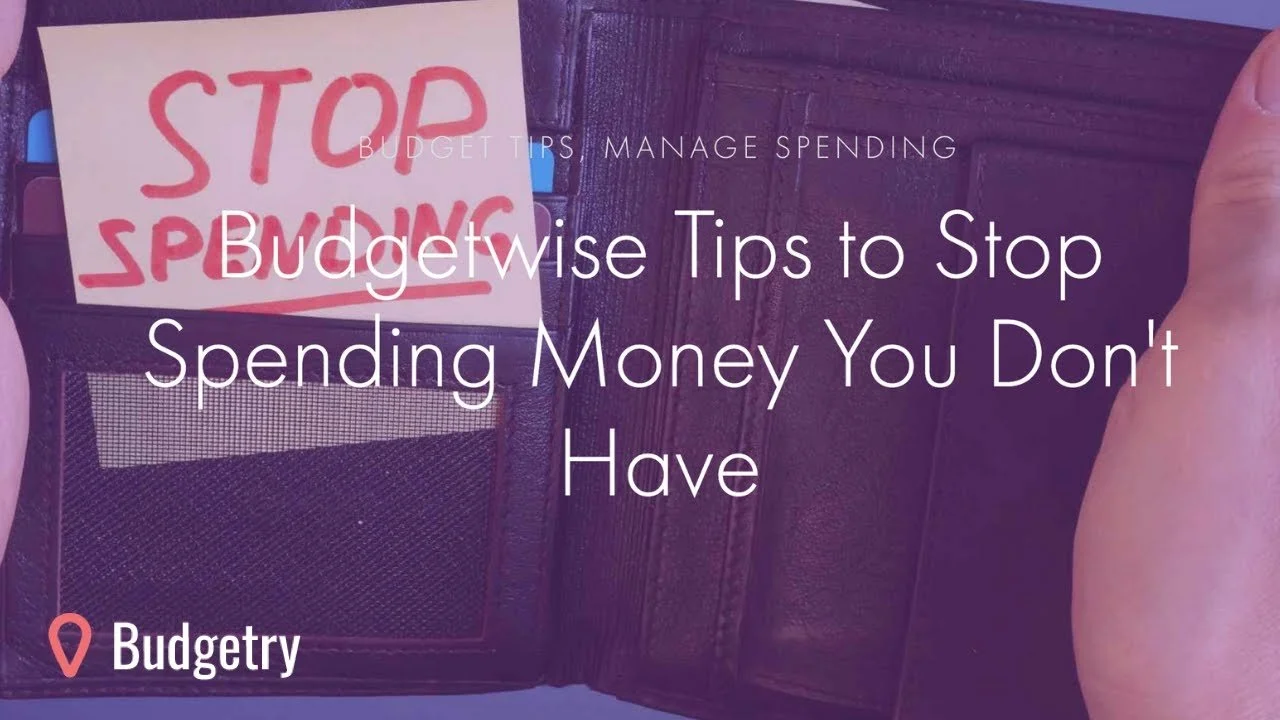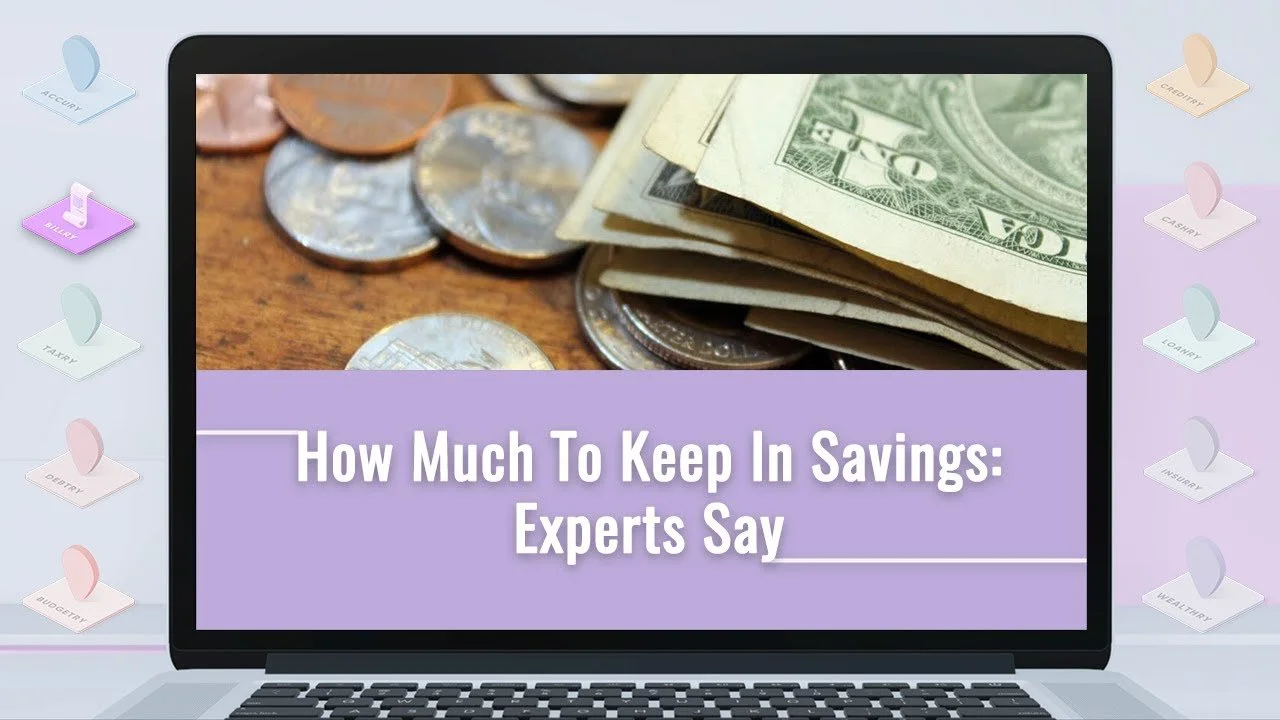How To Make Your Money Work For You and Your Goals
Are you tired of struggling in your day-to-day life and never getting ahead? Unfortunately, you're not the only one. Millions of people worldwide work their whole life and feel like they've accomplished little financially. However, if you learn how to make your money work for you, it is possible to convert your life into a surprising money-making machine that could put you in better financial health.
In this article, we take an in-depth look at how you can take your money and put it where your mouth is by converting it into a robust financial tool. Even if you don't make a lot of money, you can still use the information in this article to get ahead. And if you're clever and take your time with these steps, you might find yourself getting more out of them than you may have anticipated.
What Does It Mean When You Learn How To Make Your Money Work For You?
What exactly do we mean when we say "make your money work for you"?
We mean you should use your money to make money by creating a reasonable passive income stream.
So, for example, instead of simply saving your cash in a low-yield savings account, you can convert your money into a money-maker. Does that sound simple? Well, it's not easy, but it is something that anybody at any level can achieve.
Simply put, you can learn how to convert your income into a money machine if you're careful about how you approach this process.
Are you working paycheck-to-paycheck and struggling to get ahead? You can make your money work for you! Do you have many investments that tie up much of your free spending? You're already making your money work for you but may not be efficient about it.
Now, we don't want to make any false promises or raise unnecessary hope. Nothing in life is 100% certain, and even our tips may not work perfectly for everybody who tries them. However, we feel comfortable saying that they will help most people who understand this process. So, let's give it a deep dive and break down the top ways you can turn your money into a hard worker.
The 4 Steps You Can Take To Make Your Money Work for You
We broke down the various methods that you can use to make your money work for you. Each of these concepts may seem simple on the surface but is critical for your success using this approach. You typically need to start at the beginning and work your way down the list, so we've numbered each step to make following them a little simpler.
If you feel comfortable skipping any of these steps (for whatever reason, such as a robust financial backing), you may do so if you understand the consequences. However, if you haven't approached this process on any level yet, we strongly suggest starting with step one and moving down, as needed, getting the best results possible for your needs.
Step One: Understanding Proper Budgeting
We can't emphasize this step enough when learning how to turn around your financial situation. In fact, if we had a dollar for every time we talked about budgeting, we wouldn't have to create a budget ever again! That said, it's worth going over why a budget is so important again. A detailed budget can help you out in many unique ways and make your financial situation more manageable. But, first, it helps by letting you:
Understand Where Your Money Goes: A proper budget lets you know exactly where your money goes when you spend it. Breaking down your budget into necessary bills and unnecessary spending may reveal a surprising amount of free spending you can easily avoid.
Reduce Your Spending: When you know what your budget can cover, you can make sure you reduce your unnecessary spending. One example is to cut down on how many times you go out to eat or get delivery. However, you can also do things like cutting back on streaming video services.
Find Bad Financial Habits: Everybody has some bad financial habit that holds them back from success. For example, do you smoke cigarettes, vape, or drink alcohol? You might want to cut back on these bad habits to minimize your spending. You may also want to cut back on those shopping sprees.
Manage Your Debt: While making a reasonable budget isn't going to pay off your debts immediately, it is a good step in the right direction. We'll talk more about paying off your debts later and why this step is an important way of making your money start working for your needs.
Help Towards Saving: The ultimate goal of your budgeting should be to help you save towards a better future. This step is so important because if you want your money to work for you, you're going to have to spend a little cash. Thankfully, this process can pack back dividends when done correctly.
Focus Your Savings Properly: At this point, you should understand how to save money and minimize emergencies. You can now take some of your savings and focus on beneficial ways. These will vary based on a handful of different factors that you may want to consider.
Transition Towards Passive Income: The most successful people are those who have multiple passive income streams that continually feed their success. If you're skilled in this process, you should quickly identify various passive income streams you can use to meet this need.
Once you've created your budget, you might feel ready to tackle just about anything. However, we have bad news for you: creating a budget is just the first step in making your money work for you. You have to take many other measures to ensure you handle this process smoothly. Thankfully, we are here to help you better understand this process and ensure that your money goes where you want it to go.
Step Two: Start Paying Off All Debts
As you start paying off your debts, you might find that your financial future looks brighter indeed. If you have a mid-sized income and your debt is already starting to disappear quickly, you may not need to pay too much attention to the sub-steps within this process. You can probably transition to step three once you get your debts paid and tackle your new, financially secure life.
However, if you have a smaller income and your debt doesn't seem to be doing away, there are a few steps you can take to improve this process.
We strongly suggest that you follow these steps if your debt just spins its wheel and doesn't disappear for you. The first few steps will describe the “snowballing” method, while the rest describe what you can do once your debt starts disappearing a little:
Select Your Smallest Debt: If you have multiple sources of debt, choose the smallest one and pay as much as you feel comfortable. However, don't pay the smallest amount, as this will only increase your payment cycle time and minimize how much debt you pay off with this process.
Set Other Debts to Minimal Payments: While you may want to pay off all of your debts with heavy payments, you might not be able to afford them. Set your other debts to minimal amounts until you pay off the smallest option. Then, move to the next smallest and choose a higher cash option.
Reinvest Your Former Debt Payments: As you carefully pay off your debts, you'll find that you have more cash available. That's a fantastic feeling, isn't it? So now, start collecting and saving this money, which you'll later reinvest in various forms of extra passive income.
Produce an Emergency Fund: Before investing too heavily in passive income streams, you may want to create an emergency fund of at least $10,000 (or three months of payments, whichever is smaller) before investing. Doing so can help you avoid serious struggles later.
Consider a High-Yield Savings Account: When creating any type of emergency fund (or a health savings account), always choose the high-yield option. Even if it costs a little money to start one up, you'll make more money and can use it for future investment options.
Raise Your Credit Score With New Credit Lines: Did you know that you can improve your credit score almost instantly by getting a new credit card or loan? You may want to apply and receive one of these new credit lines to provide yourself with a more straightforward financial situation.
Once you start paying off your debts in this way, you're on your way to financial freedom. Remember what we said earlier about debts and how it proves your money isn't working for you? When you pay off all of your debts, you've found a suitable working method for your money and are on your way towards a higher level of financial security, one that may keep you strong for years to come.
However, we're not entirely done helping you out yet! We also need to highlight a few simple passive income streams that you can utilize to improve your overall health. Many different people can tap into these passive income streams. Some may require a specific skill or expertise, while others require no specialized knowledge at all! Balancing your investments here may help transform your financial health overnight.
Step Three: Create Passive Income Streams
Creating a passive income stream that continually draws cash into your pockets is essential if you want your money to work for you. You can take the money you earn in this way and invest it back on itself, creating a constant flow of money that continually increases your financial stability. We highlighted a few low-risk (and low-yield) and high-risk (and high-yield) options here for you:
Podcasts and Online Content: Though podcasts and online content (like blogs) may not pay out at a high rate, they may pay in increments. These small increments may help to gradually improve your financial state and create a high passive income for your needs.
Stocks and Other Investments: Stocks are typically considered a high-risk investment option because the market may be incredibly volatile. However, putting some investments in this market can help to create a passive income source that may work for your needs.
Various Bonds: Government bonds typically increase in value over time, which makes them one of the most stable types of passive income sources. They don't have a high-yield design, though, so make sure you balance these with a riskier but higher-paying investment.
Mutual Funds: Mutual funds are similar to government grants in that they rarely skyrocket like stocks but usually remain consistent. They also usually consistently earn, meaning they might be a good option if you want a durable alternative to offset some of your riskier investment choices.
Cryptocurrency: The jury may still be out yet on the stability and long-term potential of cryptocurrency. However, the market is still reasonably strong in many ways, and if you get in on a hot new currency, you might see your investment skyrocket and improve your bottom line tremendously.
Real Estate: Buying and renting homes, business spaces or apartments provides a steady and long-term passive income for many people. The yields might not always be high (as you pay for repairs and maintenance) but usually remains steady, providing a potential source of high-risk investment cash.
When investing in these items, make sure you set short-, medium-, and long-term goals to help improve your savings. For example, a short-term plan may be to pay off your car. A medium-term goal may be to pay off your house. A long-term goal could be sending your kids to college. You may also want to funnel some of your investment towards a 401(k), including your work or personal fund option.
You may also want to consider finding an estate planner who can help you ensure your funds go to the right people. Estate planners are a great option once you've set up your passive income streams and feel comfortable with the money they're bringing into you. You may then work with other financial experts to ensure that your money continues to work for your needs for years to come.
Step Four: Finding a Skilled Lender
By now, you should feel ready to tackle the difficulties of your financial life and regain a firmer economic footing. However, you may not feel comfortable picking a lender who may help you out here. After all, the wrong lender may result in high-interest rates or struggles repaying your bills that may affect your life and make this type of investment a colossal mistake.
Thankfully, we can help you out here. First, let's get it out of the way: we're not a lending institution, and we cannot provide you with money. Nor can we guarantee that you'll find a lender who will provide you with cash. However, we can promise that our app will streamline your search process and improve your chance of finding a lender who makes sense for your needs as a borrower.
Manage All Your Accounts with a Single Login. It's Possible with Goalry.
Goalry helps you by providing a customized list you can use when searching for lenders. Select what type of financing you need, select through our various search options, and identify a lender who works for your needs. Each of our listings should include contact information that you can use to contact your potential lender and get started on the path towards more vibrant economic health as a person.
So, why not download our app today to see what we can do for you? It costs nothing to get started, though our premium options will improve your searches and enhance your overall experience. When you're willing to take a risk like this for yourself, you make it easier to get your money to work for you by taking this simple investment and converting it into a steady passive income stream.
What's Holding You Back?
Have you used these steps to identify the life elements that seem to hold you back? Everybody has something that makes life more challenging for them. For example, even the wealthiest people may struggle to convert their cash into a money-making machine by making bad financial decisions that adversely impact their financial bottom line. Thankfully, you should be ready to break out of these bad habits.
Whatever steps you take here, make sure that you are flexible and willing to change your approach if you encounter any troubles. For example, you may find yourself struggling with finding the best lender for your needs or struggle to find great investment opportunities. Reach out to professionals who can help you here, particularly with investment, as one wrong turn may send your money down the drain.











